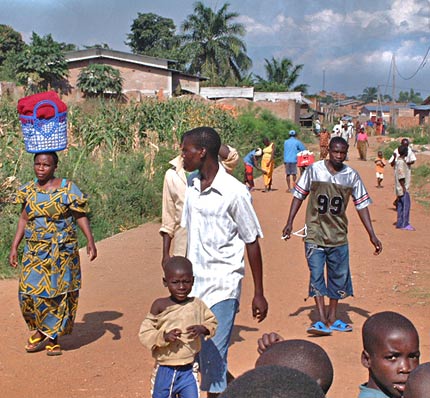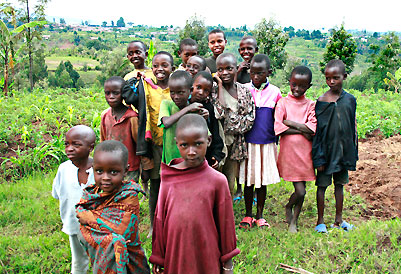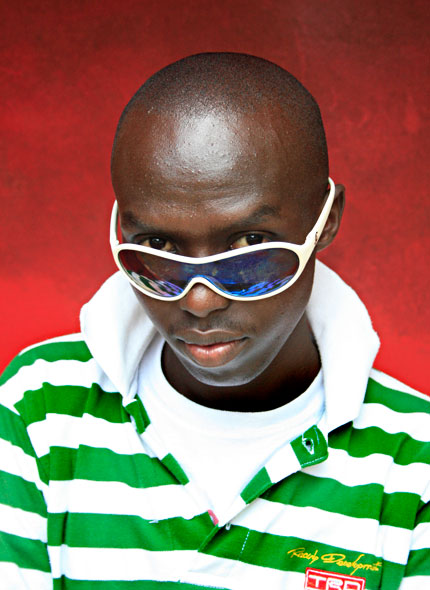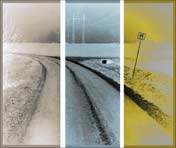BURUNDI
TFF has been engaged on and off in Burundi, the little heart-shaped country in Africa with 8 million inhabitants, since the year 1999.

 It ended its work there in 2010.Here is what we wrote in 2011. Later it did not go so well.
Burundi is a good, pro-peace story out of Africa, in the wake of war and genocide. Nevertheless, the world over, neighbouring Rwanda has received most of the attention and every year the genocide there is commemorated.
The documentaries, history books, Hollywood movies and novels are about Rwanda. Rwanda's leadership is authoritarian and the country remains involved in violence in Congo. Yet, it still receives substantial development aid and investments.
 Bussuro in the outskirts of the capital, Bujumbura
Bussuro in the outskirts of the capital, Bujumbura


Remembering genocides is one very important means of helping to ensure that these tragic events do not happen again. So those who know Burundi could ask themselves: Why never a word about Burundi?
In the genocide there in the 1990s, at least 300,000 were killed; isn't that worthy of commemoration in the media?
Rwanda and Burundi used to be one country, their ethnic composition is identical, the political violence displays the same dynamics.
The difference is that in the genocide in Rwanda about 3 times more people were killed. 

However, there is another, more positive, significant difference, namely, that Burundi, since the Arusha Peace Accords of 2000, against all odds and most expert predictions, has moved quite far down the road of reconciliation towards peace, albeit not yet a stabilized peace.
Hutus and Tutsis live much better together in Burundi than ethnic groups do in Bosnia and Kosovo, for example. And, for sure, one can question the whole hypothesis that this was, essentially, an ethnic conflict. It was much more about power in a variety of ways, the legacy of colonialism and about how to build and develop a new society out of deep poverty and huge income gaps.


Apart from an excellent but very small United Nation mission, the international so-called community's efforts to help Burundi to consolidate peace has been woefully inadequate.
Burundi consistently receives less than 50% of the requests it makes for international aid; although the sums sought are tiny compared to what is given to bigger neighbours or squandered on wars. The annual per capita income in Burundi remains around US$150, which makes it the third poorest country on earth.

It's all about their future, isn't it?



There is still a lot to do to consolidate peace in Burundi: corruption is rampant at all levels and periodically there is quite some instability. One armed movement, now based in Congo, continues to spread fear and hatred inside Burundi; it's the only non-signatory of the Arusha Peace Accords out of 17 armed movements that took part in the negotiations.
Today, the government is increasingly clamping down on people in the NGO community, human rights movements, media and on opposition politicians - some are arrested, other chased and killed. 


In this amazingly beautiful country, the land/people ratio remains frightening. If there is one single issue that could make the whole country blow up again, it is land.
The huge majority of Burundians are peasants and live on what can be produced up and down the 'collines' - hilly landscape - and sold at the local markets. A great majority of the people live by cultivating their small plots, and the only significant export products are coffee, tea and bananas. So land is extremely important for the consolidation of peace as well as for the satisfaction of basic human needs and overall economic development.

Here is what the situation is like by 2017
Burundi has been consumed by internal violence. President Nkurunziza's main policy goal seems to be to keep himself in the President's palace until 2034. He has stated that he has God's mandate to do so.
On the way to achieve that goal, the Arusha Peace Accords have clearly been violated and so has the country's constitution.
Hundreds of thousands have fled to neighbouring countries due to rampant government-instigated terror against its own people.
Civil society and media have been reduced to a bare minimum. Socio-economic problems have created a huge crisis and the country is now likely the poorest in the world in terms of per capita income.
So poor is that the leadership has asked the people to crowd-fund and donate money to finance the future elections.
The ruling party is strong also because there is no viable, cohesive political opposition.
Burundi has quit the International Criminal Court and demanded that the earlier UN missions were drawn down. The last UN Mission left the country at the end of 2015.
After having left Burundi in 2010, TFF has only published short occasional articles and early warnings. Since the very serious crisis broke out in 2015, it has also argued that if there ever were a case in need of a genuine humanitarian intervention - one that would stand a reasonable chance to save people from future calamity - it would be Burundi.
There has, however, been no united will in the UN or elsewhere to do something - probably because it is such a small land-locked country which mainly produces tea, coffee and bananas and may - or may not - possess some strategic raw materials.
Both China, Russia and Western countries are involved in various ways in Burundi.
Associates' writings about Burundi 2012-2017

Jules, student, Bujumbura



 Get Free Email Updates
Get Free Email Updates Support this site
Support this site Feedback
Feedback About this website
About this website